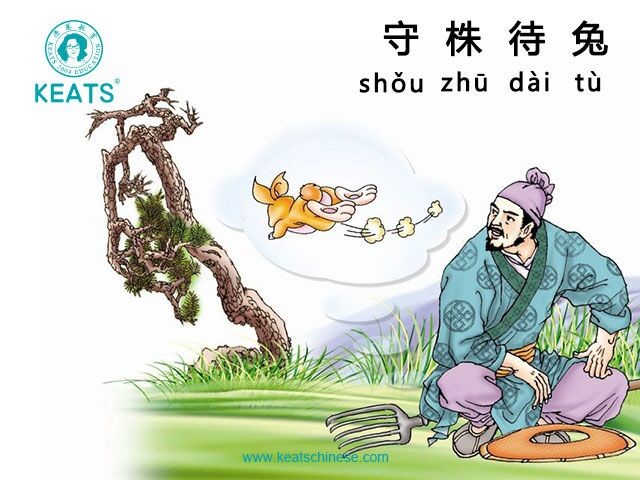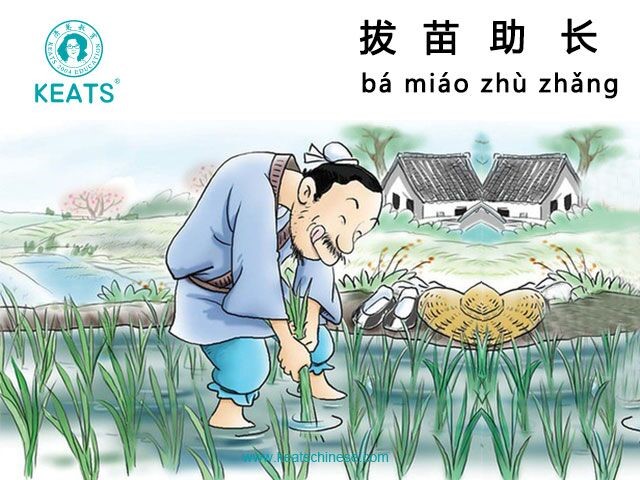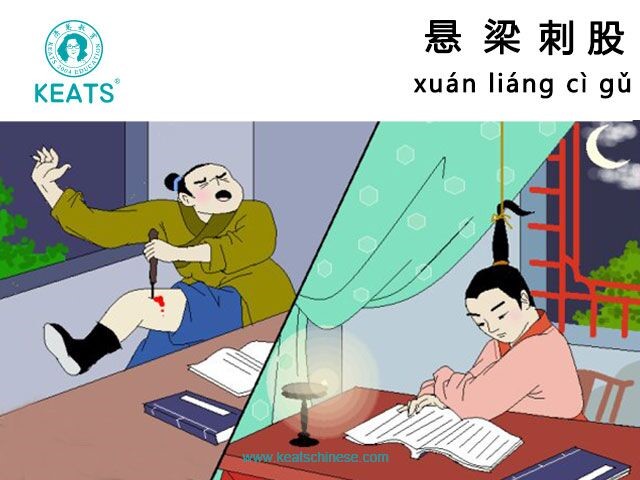Working Hard Like the Ancient Chinese
Traditional Chinese culture has many thoughts on the true meaning of hard work. There are many Chengyu (Chinese four part idioms) that speak as to what hard work meant in times past. Today I will introduce three Chengyu that will help us to remember to work hard today. Remember to use these if you learn Chinese in China. Using idioms like these makes you seem even more fluent in Chinese.
#1 Don’t Trust Your Dinner to Chance
守株待兔 (shŏu zhū dài tù)
The literal meaning of this Chinese idiom is, “watch plants wait for rabbit,” but without knowing the story behind this Chengyu, it doesn’t really make sense.
The story is about an old farmer toiling away in his field day after day. One way while he was tending his plants, he saw a rabbit run straight into a large tree trunk. The rabbit died instantly. The old farmer thought to himself, “How wonderful, tonight I will have a wonderful dinner, and all I had to do is watch for the rabbit and pick it up afterward! Perhaps in all of my time working, I have missed my dinner all of these years.”
His dinner was so delicious and it was so easy to come by that the next day the tired old farmer thought he would just sit down and watch for rabbits instead of tending to his fields.
Day after day the farmer waited and waited, but no more rabbits arrived on his dinner table. All his plants rotted in his field because he gave up tending to them in order to watch for rabbits. The farmer and his family grew very hungry waiting for rabbits.
The lesson behind this story is, do not expect reward without hard work. The actual meaning of this proverb is if a man will not work, he won’t eat. When you understand the tale surrounding守株待兔 it is much easier to remember that it is used to mean “don’t trust your dinner to chance”, or “without toil, you will not eat.”
Example 1:
他辞职以后没有主动找新的工作,只是守株待兔,等待新的机会。
(Tā cízhí yǐ hòu méi yǒu zhǔdòng zhǎo xīn de gōngzuò, zhǐ shì shǒuzhūdàitù, děng dài xīn de jīhuì.)
After he quit his job, he did not try to find a new job. He is just waiting for the new opportunity to come.
Example 2:
他总是守株待兔,被动地等待别人的帮助。
(Tā zǒng shì shǒuzhūdàitù, bèi dòng de děngdài bié rén de bāngzhù.)
He waits for the chance to come, passively waiting for help from other people.
Example 3:
没有人能靠守株待兔取得成功。
(Méi yǒu rén néng kào shǒuzhūdàitù qǔ dé chénggōng.)
No one can succeed without hard work.
#2 Enthusiastic Destruction
拔苗助长(bá miáo zhù zhǎng)
This next Chengyu is also related to farming or growing crops. Literally, 拔苗助长means “pull seedling help grow.”
This Chinese idiom also derives from a tale about a farmer. This young farmer worked along steadily, but wanted faster results. He was a very impatient person (不耐烦的人, bù nàifán de rén). Every day as he worked he would try to think of new ways to grow his crops faster.
One day he finally thought he had developed a brilliant plan. He thought if he could pull on each plant, this would stretch it and make it grow faster. That day he worked very hard going from seedling to seedling, pulling on each one. At the end of the day the young farmer was very tired but very happy. He thought it would not be long before he could harvest and sell his crops to make a great profit.
The next morning when he went to his field he was shocked to see all of his once beautiful plants bruised, wilted, and dying on the ground.
In his enthusiasm the young farmer caused great destruction. So this idiom means to not be hasty because it might spoil things in the end.
Example 1:
给员工一些挑战和压力是可以的,但是一定不能拔苗助长。
(Gěi yuán gōng yì xiē tiǎo zhàn hé yā lì shì ké yǐ de, dàn shì yí dìng bù néng bámiáozhùzhǎng.)
It is reasonable to give your employees some challenges and pressure, but you cannot push them too much, which might cause loss.
Example 2:
我们不能过分追求公司的发展速度,这无异于是拔苗助长。
(Wǒ men bù néng guòfèn zhuīqiú gōngsī de fāzhǎn sùdù, zhè wú yì yú shì bámiáozhùzhǎng.)
We cannot push too much on the development of the company, and this would lead to destruction.
Example 3:
文化艺术事业不能拔苗助长,急于求成,需要时间来积累和沉淀。
(Wénhuà yìshù shìyè bù néng bámiáozhùzhǎng, jí yú qiú chéng, xūyào shíjiān lái jīlěi hé chéndiàn.)
The accomplishment of art cannot be achieved in a very short time, because it needs time to accumulate and be experienced.
#3 No Pain, No Gain
悬梁刺股(xuán liáng cì gŭ)
This third Chinese idiom is about those who do work hard. The literal meaning is “hang beam thorn share,” and you really have to understand the tale to grasp its meaning.
This Chengyu is about two students who did in fact work very hard. Their names were Sūn Jìng and Sū Qín. They studied night and day. But they often studied so long that they found themselves very tired and would fall asleep. They had to do something to keep from dozing off during their important studies.
One decided to tie his long hair to the beam that supported the roof. When he started to doze, the tug on his hair would awaken him. The other decided he would hold a sharp pick or thorn on his leg and when he would begin to nod off the small stabbing pain would wake him up.
This Chengyu, 悬梁刺股, is very similar to the English saying “no pain no gain” but is generally more positive. It is used to mean sometimes pain is necessary to gain something.
Example 1:
你要用悬梁刺股的精神来学习汉语。
(Nǐ yào yòng xuánliángcìgǔ de jīngshen lái xuéxí hànyǔ.)
You need to work very hard to learn Chinese.
Example 2:
我相信只要拿出悬梁刺股的精神,我们就一定能取得好成绩。
(Wǒ xiāngxìn zhǐ yào ná chū xuánliángcìgǔ de jīngshen, wǒ men jiù yí dìng néng qǔ dé hǎo chéngjì.)
I believe that as long as we work very hard, we will definitely get great scores.
Example 3:
为了考大学,他效仿古人悬梁刺股的学习精神。
(Wèi le kǎo dà xué, tā xiàofǎng gǔ rén xuánliángcìgǔ de xuéxí jīngshen.)
In order to get admitted into a university, he imitated ancient people’s learning spirit.








This Post Has 0 Comments